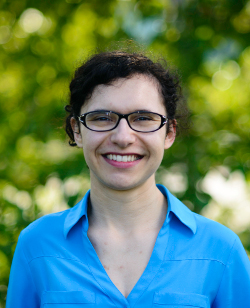 | |
Fall 2017 |
Newsletter Archive |
Summer Student Profile: Nisha Panesar |  |

When I was in elementary school, my school had a "naturalization area": an educational garden full of native plants that the students would work together to maintain. My Grade 6 class also went to Outdoor School for a week, and in junior high, I went on a class sailing trip around the B.C. Gulf Islands where I learned about marine ecology. So from a young age, I learned the importance of environmental stewardship. Through my degree in Environmental Science, I have gained an appreciation for the complexity of both the natural world and the challenges of preserving it. As a summer student with Miistakis, I'm working on two projects. The first is a beaver survey in partnership with Cows & Fish to assess rural Albertans' knowledge and opinions on beavers, to help develop educational materials on human-beaver coexistence. My main task was to contact those in the Miistakis network who would be willing to help us distribute the survey. After the survey closes, I will be helping with the analysis of the survey results. We have had a tremendous number of responses, so I am excited to see what everyone has to say about beavers! Once analysis is finished, the results will be available online in a report on both the Miistakis and Cows & Fish websites (www.rockies.ca and www.cowsandfish.org). My second project is in conjunction with the Office of Research, Scholarship and Community Engagement at Mount Royal University with Dr. Michael Quinn. I am continuing work on a literature review about carnivore compensation programs, and preparing it for publication. Carnivore compensation programs provide compensation to livestock owners when a predator kills or injures livestock and thus impacts their income. They are often used as a tool to help conserve at risk predators. It's a global review, so there is quite a lot of information about the different types, the different contexts, what works and what doesn't. Both of these projects have demonstrated the importance of collaborating with others. We couldn't have had the response we did to the beaver survey without the help of those who agreed to help us get the word out, so thank you! As for the carnivore compensation review, I've read a lot about how it's important to tailor the program to a specific community, and one of the essentials to do this is to collaborate with the community who will be affected by it. I am so grateful to work with an institute who facilitates the collaboration that is needed to preserve this blue marble we call home. | |